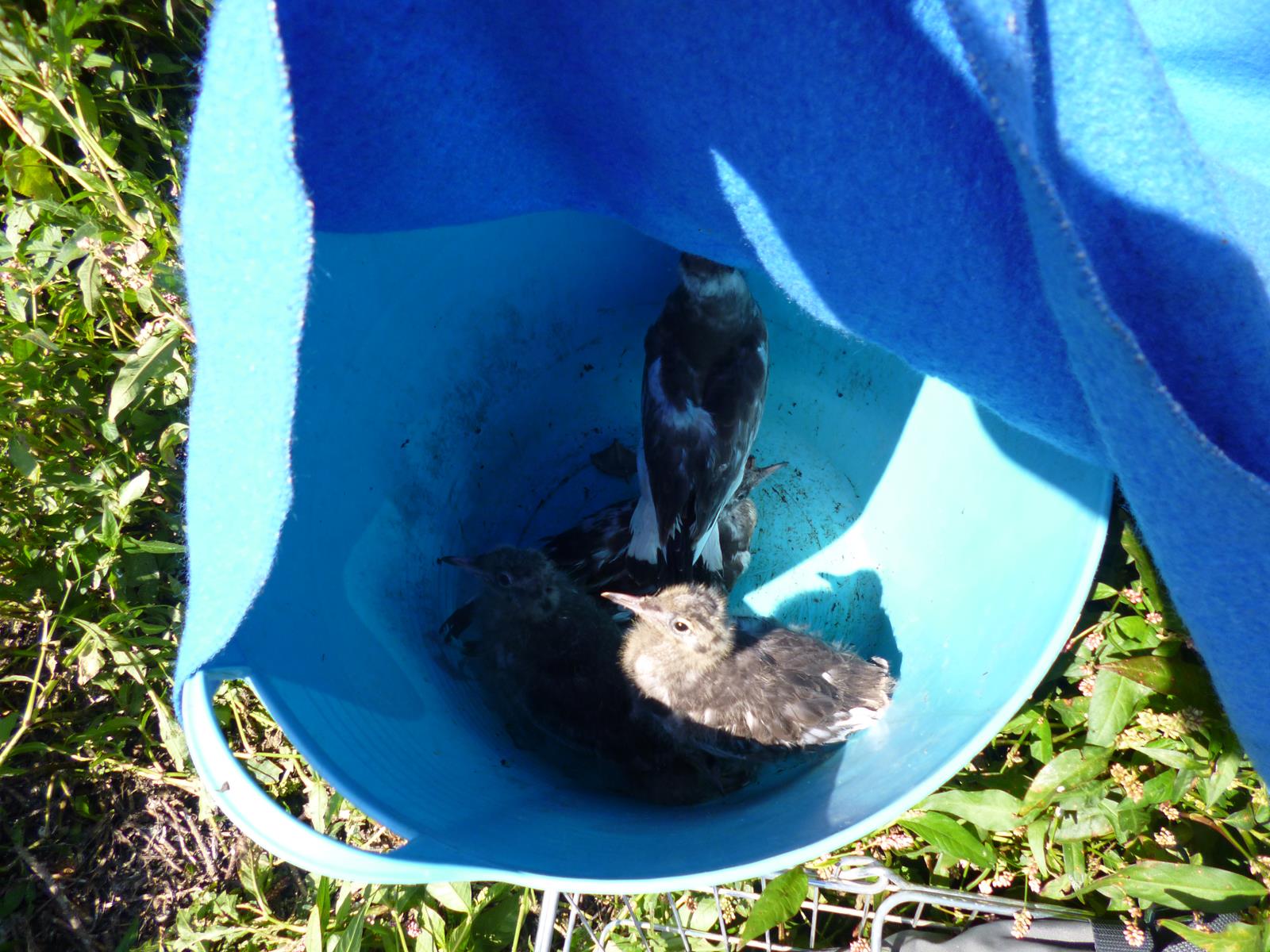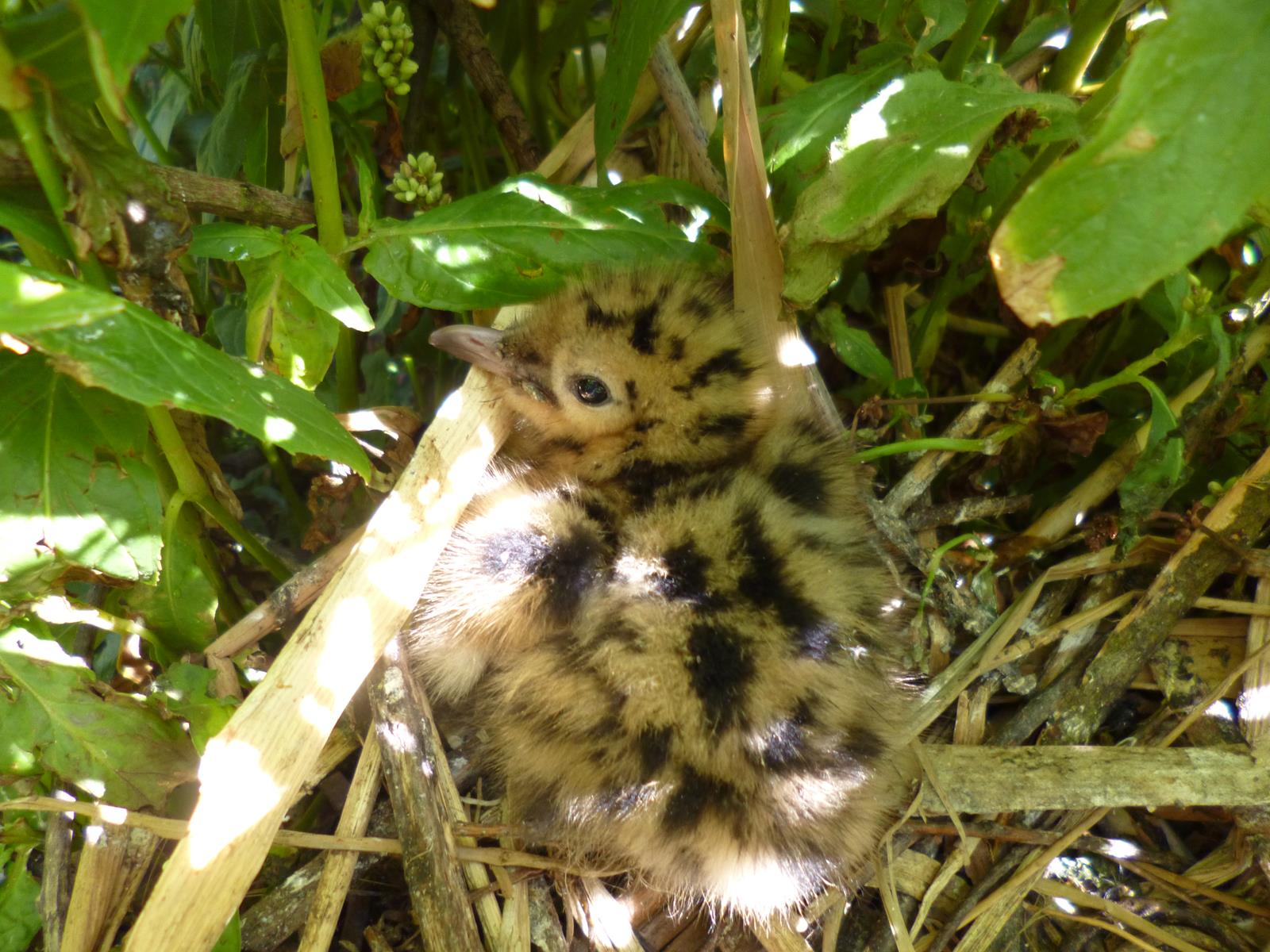Fleet Pond is both a Nature Reserve and a Site of Special Scientific Interest (an overview and map is here). The latter has important implications, in particular the avoidance of the introduction of alien species.
Colin Gray, Chairman of Fleet Pond Society, explains and give some examples of the importance of not introducing non-native plants or animals:
“Fleet Pond is a Site of Special Scientific Interest (SSSI). The legislation that notifies a SSSI includes the protection of native plants and animals naturally found on the site. These regulations have been incorporated into the by-laws governing Fleet Pond.
Any non-native plant or animal poses a threat to the survival of the native species. There are already examples of how non-native species are having an adverse effect. The American Skunk Cabbage that grew in abundance in the wet area of Brookly Wood has spread its seeds via the Brookly Stream and can now be found at numerous sites around the water edges. The large, thick leaves shade light off smaller, less vigorous plants.

Picture of Skunk Cabbage at the Pond – see here
Rhododendron and Cherry Laurel, both “aliens” are competing successfully with native species in the wooded areas. These tend to be introduced by roots spreading out and by birds carrying the seed. Seed of Red Currant and Cotoneaster have also led to these plants now appearing at several sites.
Most of the above is as a result of being close to private gardens containing these plants and cannot be considered “deliberate” introduction of non-natives.
Introduction of animals or birds is also illegal under this legislation. Sadly we cannot take the animal rights group to court for releasing Mink from fur farms; too distant in time and space, but this has led to a non-native animal having a serious adverse impact on our birds and small mammals. Similarly the introduction of the American Signal Crayfish is a result of a serious mistake elsewhere.
A couple of years ago I stopped two people carrying a large plastic bag containing goldfish. They were planning to put them in Fleet Pond. I explained that such an act was illegal and likely to attract a high fine and they changed their minds and drove away. The fact that a goldfish would be very unlikely to survive long as they are so easy to spot by our fish eating birds meant their chance of survival was low, but goldfish can carry virus or parasites that would be transferred to the carp in the pond.
Introducing plants or animals deliberately must be avoided if the integrity of Fleet Pond’s SSSI notification is to be maintained. There are therefore potentially high financial penalties for anyone found to be introducing a non-native plant or animal.
Recently we found two small “pits” cut into a bank on the Dry Heath and hidden by the gorse thickets there. These had been surrounded by chicken wire, filled with fresh soil and planted with unidentified seeds. Had we caught the culprit the fine imposed could have been high and, in some cases, the penalty can be levied per plant. This attempt at introducing plants has been removed but we will need to keep our eyes open to ensure another attempt is not made.
Please let us know should you see anyone planting plants or trees or releasing any animal or warn them of the consequences of their action.”
From the GOV.UK site:
Sites of special scientific interest (SSSIs) conserve and protect the best of our wildlife, geological and physiographical heritage for the benefit of present and future generations. There are over 4,000 SSSIs in England, covering around 8% of the country.











